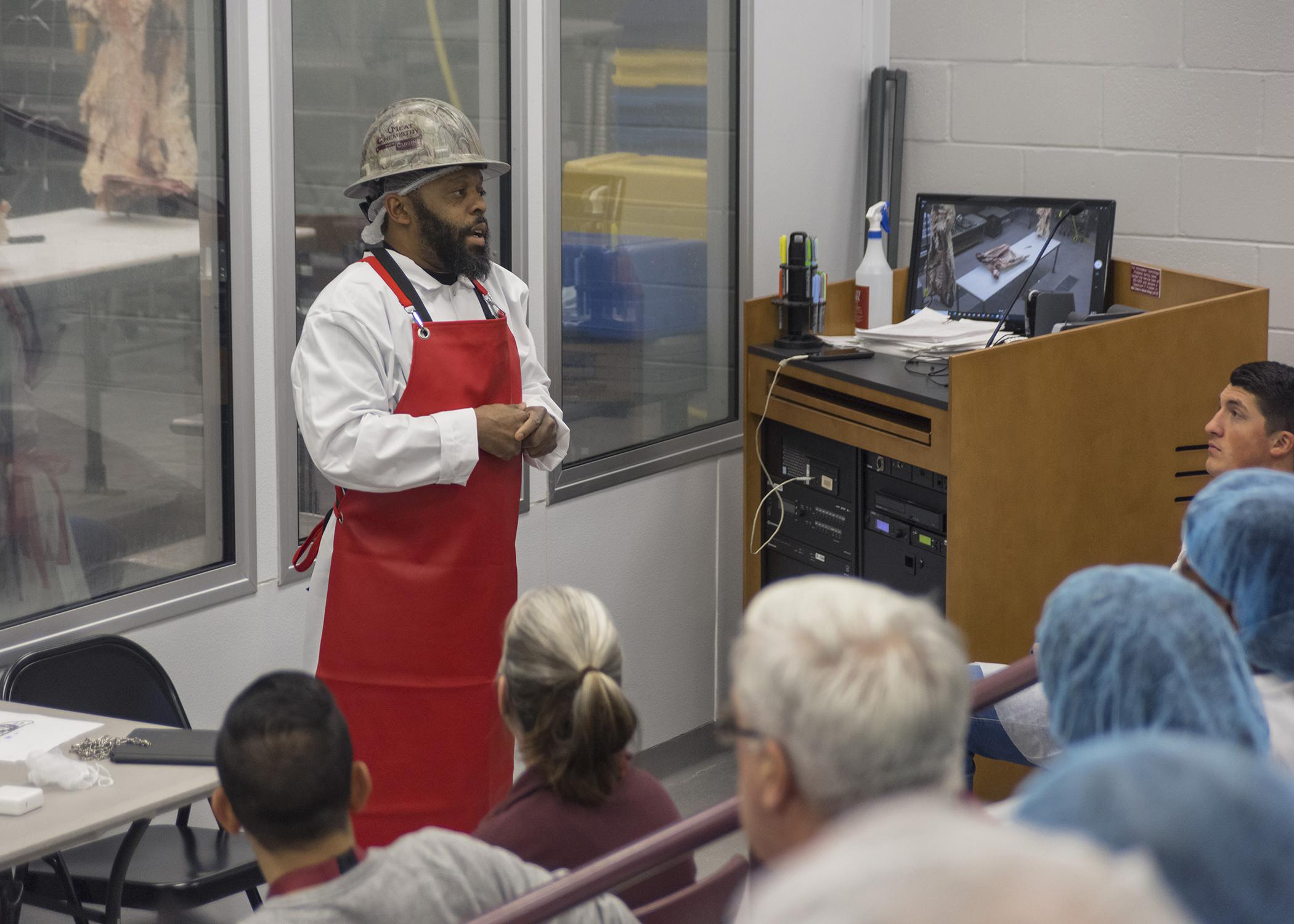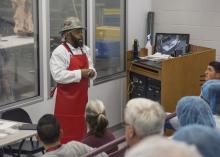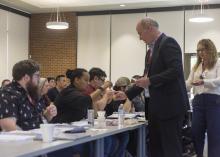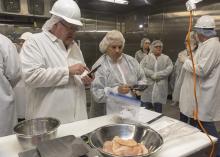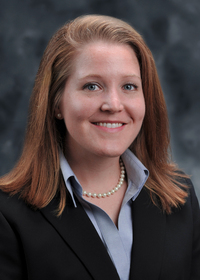MSU’s Marination 101 supports food industry
STARKVILLE, Miss. -- While “marination” brings up images of resealable bags and special sauces for many home cooks and backyard chefs, it meant hard-core meat science and technological advances to 47 industry professionals who attended Marination 101 at Mississippi State University.
In mid-April, MSU Extension offered the workshop “Marination 101: The Flavor of Science” to industry personnel from across the United States and Canada. Topics covered included meat marination, marinade formulations, breading, food chemistry, flavor enhancements, equipment and more.
Attendees came for continuing education from marketing, food service, ingredient sales, quality assurance, technical services, and research and development in their various industries.
Courtney Crist, workshop organizer and MSU Extension food safety specialist in the Department of Food Science, Nutrition and Health Promotion, said the conference is offered annually to meet demand from the industry.
“The goal of the course is to extend knowledge of food processing and meat science from experts to industry professionals and provide a forum for education, networking, insights and technical solutions for all in attendance,” Crist said. “We hope that industry professionals gain insights, methods and skills that will assist the industry with improvements in product yields, flavor quality, product safety and cost savings.”
Byron Williams, Extension food processing, safety and regulatory specialist, defined marination as the addition of liquids, spices and flavorings to products -- mainly muscle food products -- before further processing.
“Usually, the purpose of marinades is to add flavor and tenderness, which comes with enhanced juiciness, moisture retention, yield enhancement and a more pleasurable eating experience,” Williams said.
Specific topics covered in the three-day seminar were seafood marination, basic meat chemistry, sustainability in the food industry, marinade ingredients to enhance shelf life, batter and breading, mechanics and methods of marination, flavor technology and trends, use of salt and other essential ingredients in marinades, and fabrication of beef, pork and chicken carcasses into retail cuts.
A series of hands-on labs allowed participants to troubleshoot marination issues associated with equipment, experiment with gluten- and allergen-free solutions, work with various meat injections and marinade calculations, and more.
Mark Hansen works in sales for Downs Food Group in Mankato, Minnesota. He and coworkers in accounting and procurement attended Marination 101.
“We’re encouraged to take these business education courses because it certainly relates to our products,” Hansen said. “Our company encourages us to get out and keep learning.”
Hansen is in charge of U.S. sales for his company’s retail accounts and came to the workshop to network with others in the industry and to learn background information about products and practices.
Tom Healey, an MSU graduate, serves as vice president of international supply chain for Dairy Queen and is a member of the Marination 101 planning committee. He said the workshop is important continuing education for industry professionals.
“This workshop helps participants further develop their careers while performing better in their current jobs,” Healey said. “This workshop can be a refresher course as well as allowing those who attend to pick up on some of the latest industry trends, including new technology, labeling, regulatory effects and utilization of new ingredients, as well as updates on consumer attitudes and health perceptions.”
Guy Simmons, a senior vice president of Sea Watch International in Easton, Maryland, attended Marination 101 two different times before he became a presenter when workshop organizers wanted to add seafood to the mix of muscle foods being discussed that utilize marination techniques.
“I sell clams to some of the biggest seafood houses in the country,” Simmons said. “With 41 years in the business, I bring experience and the overall perspective, from sales, research and development to production.
“A lot of times, the operations, product development and salespeople will be at odds because they don’t understand the other people’s business,” he said. “The more people know about what the other departments and industries do, the better the work environment.”
2023 marked the 14th year MSU has offered Marination 101. For more information about upcoming workshops or MSU’s work in support of the food industry, visit .

